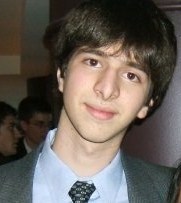 |
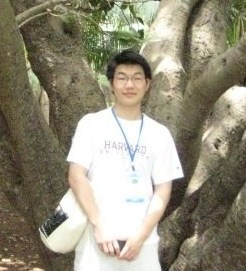 |
| Robert Kleinman (99.8%) | Edward Li (99.5%) |
Shortcut to Success? Not at all.
DANIEL JACOBS
Robert Kleinman and Edward Li have reached levels of academic success that aren’t supposed to be possible. Edward, with an average of 99.5%, placed third out of all the students in the TDSB. Robert Kleinman, with an average of 99.8%, came first. Grades such as those are occasionally seen as good marks on a quiz, but as an average? It is an absolutely unbelievable achievement. In the words of one impressed student, Cindy Guo: “Legendary people… they’ll always be remembered by us.”
I’m ashamed to admit that the first thing to cross my mind when I read of Robert’s and Edward’s successes was a rather strong piece of French invective. I was sitting in the computer lab of the Trois-Pistoles Adult Education Centre, and I’d been feeling pretty good about myself. My marks were great, and I’d even come all the way to Québec to learn French. What a swell guy. Then, out of the blue, that 99.8% landed on me like a ton of textbooks. The effect on my ego, in the succinct terms of Mortal Kombat, was simply: FATALITY.
 |
 |
| Robert Kleinman (99.8%) | Edward Li (99.5%) |
After scraping the remains of my pride off the floor, I took some time to think about the situation. Agreed, it is hypothetically possible to get marks like that, but what would it take? North Toronto students had varying opinions on the matter. Talvi Parming thinks, “It takes a lot of studying, and a lot of free time to spend studying.” She goes on to add, grudgingly, that “I guess being naturally smart helps too.” Allison Soong believes that a liking for the subject is important as well as an innate talent for absorbing information. Peter Zeng believes you need to be “endowed with brilliance, be very hardworking, and have great time management skills.” The general consensus seems to be this: in order to get a near perfect average, you need a combination of intelligence, and the patience to get through lots of paperwork.
Robert and Edward have shown us that it is possible to approach perfection. Why, therefore, is a 99% still such a rarity at NT, an institution filled with so many bright minds? Speaking of Robert and Edward’s averages, Cindy Qiu jokes, “It makes me want to work really hard for about five minutes, and then I realize that it’s probably not going to work out for me. It takes a lot of discipline to have good study habits.” Douglas Lam agrees. “To pull of that kind of success requires a great deal of focus, attention to detail, and persistency to understand above and beyond the basic requirements in any course.”
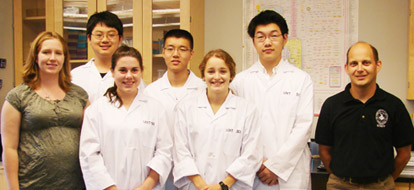 |
| Edward Li working in a lab |
It’d be simple to classify Edward and Robert into the ‘super-genius study-freak’ category, but it’s not that easy: Edward is an avid badminton player, and organised the school Math Club. Robert led the school chess team, and (as Mr Mendelovits helpfully pointed out) is a breast-stroker of rare skill, not to mention senior boys’ captain on the swim team. Not only did they find time to focus on academics, they also followed their own interests. Now, at this point, it just seems unfair. These two have high grades and still have some time for diversions? Ivana Danon is curious as to how much they had to give up in order to achieve what they did, and asks “Is it really worth it in the end?”
The answer, coming from both Robert and Edward, is a definitive yes. “I’m pretty happy with most of the major choices I made over the last four years, and would make the same ones over again,” says Robert. For Edward, “there are definitely small things here and there that I wish I had or hadn’t done. But in terms of major decisions, I don’t think there is anything that I regret.” The cost of the sacrifices that each made in order to achieve their goals were minor in comparison to the rewards. Edward is most puzzled by people assuming that academic success requires a huge sacrifice of social life. “This isn’t true in the slightest bit,” he argues. “I feel I study less than my classmates. Success in school does not depend on how much time is spent studying. A productive hour can be more effective than a whole day’s work.” While Edward wishes he had more time to develop his hobbies and Robert would prefer a 35 hour day, neither feels that his sacrifices were major. For example, the biggest change that Robert made was to stop watching television. “That freed up an hour or two of each day,” he says happily.

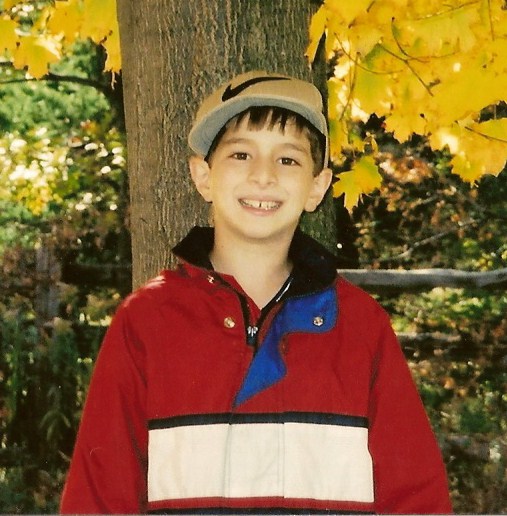

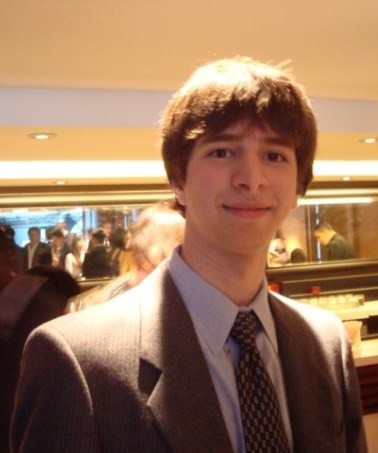 |
| Life of Robert Kleinman |
So if their lifestyles didn’t change very much, then what is it that allowed these two to achieve such a high average? Was it the techniques they used to study? Edward says, “I don’t think I did anything differently from everyone else. In short, I read, I remember, I apply.” So no tricks, no magic. Just work and diligence. According to Robert, “it is very difficult, if not impossible, to succeed without good training and a large amount of effort.” But as we’ve already discussed, it is extremely difficult to sustain the drive to succeed over an extended period of time. What personality traits allowed Robert and Edward to do so? Edward believes it is due to his being inquisitive, tenacious, and independent, but also says, “the characteristic that I value the most is resourcefulness.” Robert’s answer is devastatingly simple. “I’m willing to work hard when working towards a goal,” he explains.
These answers are fairly standard for any successful student, yet not many students can boast to have achieved so much. There must exist some fundamental difference that gave rise to their achievements. In essence, we must ask why Robert and Edward value academic success, and why they push themselves to such heights. In his answer to this, Robert continues with his trend of baffling simplicity, saying only “I always try to do the best that I can, no matter what the area.” Edward’s explanation is more emotional. “As immigrants to Canada, my parents sacrificed a lot,” he says. “They left behind things that took them decades to build just to give me a brighter future. Academic achievements are important to me because they demonstrate that my parents made the right choice… It lifts a burden off my shoulders.” However, he never cared about rankings. Like Robert, Edward says he wished only to do the best he could.
Both Robert and Edward lifted themselves to such heights because of a desire to test their own limits. “Ever since Grade 9, they continually pushed each other,” says Mr Zohar. They helped each other along the way in one of the most intense competitions North Toronto will ever see. But what of the students who follow? Far from being depressed at the prospect of ever bettering them, we should be inspired. In the words of Mitchell Fort, “Their achievement is grand. It is a testament to the excellence that can be reached within the public school system through hard work, persistence and discipline.” Angie Tong is of a similar mind. “I think what they’ve done is beyond amazing,” she says. “It’s inspirational and something I respect a lot.”
Does that mean the rest of us who lack the ability to follow through on our grand ideas are failures? Lori Nemoy admits that she will never be able to focus to quite that degree, but, then again, “a 99.8% average is not what I most want out of life.” Or, as Vlad Durdureanu puts it, “most people aren’t willing to sacrifice certain aspects of their lives for [academics].” Robert and Edward were willing to commit a great amount of time and effort into their scholastic endeavours, but for many, school and percentages are not of pivotal importance. Paula Sanderson says, “I really don’t care [about grades] as long as I learned something and improved.” According to Robert, success is measured by doing one’s best. For his part, Edward also reminds us that, even in the worst situation, “you can learn a lot from failure.”